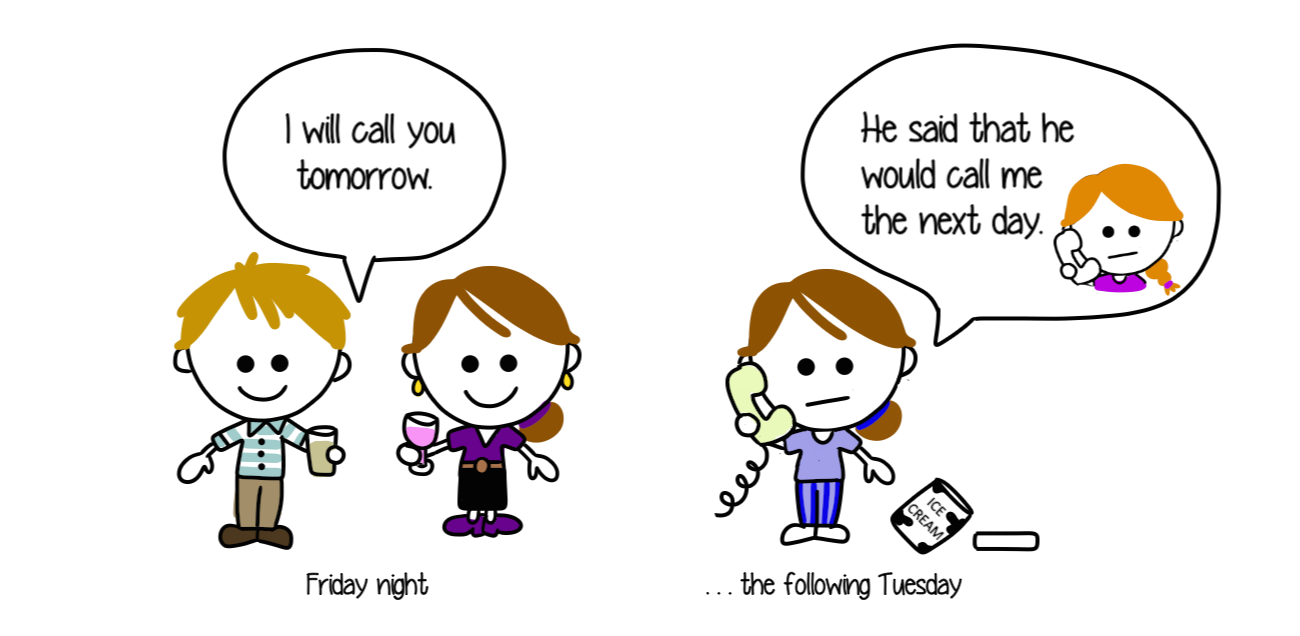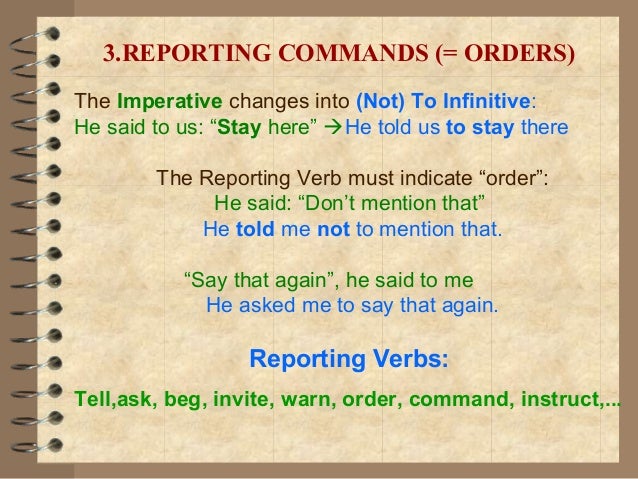SAY OR TELL?
The verbs say and tell have similar meanings. They both mean "to communicate verbally with someone". But we often use them differently.
The simple way to think of say and tell is:
- You say something
- You tell someone something
| You say something | You tell someone something |
|---|
| Ram said that he was tired. | Ram told Jane that he was tired. |
| Anthony says you have a new job. | Anthony tells me you have a new job. |
| Tara said: "I love you." | Tara told John that she loved him. |
But, of course, it is not always so easy. Here are a few rules to help you.
Personal object
We usually follow tell with a personal object (the person that we are speaking to). We usually use say without a personal object:
- She told me that she loved John.
- She said that she loved John.
- He told everybody that he had to leave.
- He said that he had to leave.
Say "to someone"
With say, we sometimes use "to someone":
- He said to me that he was tired.
- Tara said to Ram that he had done very well.
- Anthony said to her, "I hope you come soon."
https://www.englishclub.com/vocabulary/cw-say-tell.htm
BASIC REPORTING VERBS: SAID OR TOLD? PLACE AND TIME ADVERBS: CHANGES
TO START, DO THIS QUIZ
THEN DO
THIS EASY EXERCISE
YES/NO QUESTIONS:
W-QUESTIONS
To practise, click
HERE
COMMANDS
http://www.perfect-english-grammar.com/reported-speech.html
Reported Requests
There's more! What if someone asks you to do something (in a polite way)? For example:
- Direct speech: "Close the window, please"
- Or: "Could you close the window please?"
- Or: "Would you mind closing the window please?"
All of these requests mean the same thing, so we don't need to report
every word when we tell another person about it. We simply use 'ask me + to + infinitive':
- Reported speech: She asked me to close the window.
Here are a few more examples:
| Direct Request | Reported Request |
| “Please help me”. | She asked me to help her. |
| “Please don't smoke”. | She asked me not to smoke. |
| “Could you bring my book tonight?” | She asked me to bring her book that night. |
| “Could you pass the milk, please?” | She asked me to pass the milk. |
| “Would you mind coming early tomorrow?” | She asked me to come early the next day. |
To report a negative request, use 'not':
- Direct speech: "Please don't be late."
- Reported speech: She asked us not to be late.
Reported Orders
And finally, how about if someone doesn't ask so politely? We can call
this an 'order' in English, when someone tells you very directly to do
something. For example:
- Direct speech: "Sit down!"
In fact, we make this into reported speech in the same way as a request. We just use 'tell' instead of 'ask':
- Reported speech: She told me to sit down.
| Direct Order | Reported Order |
| “Go to bed!” | He told the child to go to bed. |
| “Don't worry!” | He told her not to worry. |
| “Be on time!” | He told me to be on time. |
| “Don't smoke!” | He told us not to smoke. |
LINK 1
REPORTED MIXED SENTENCES




